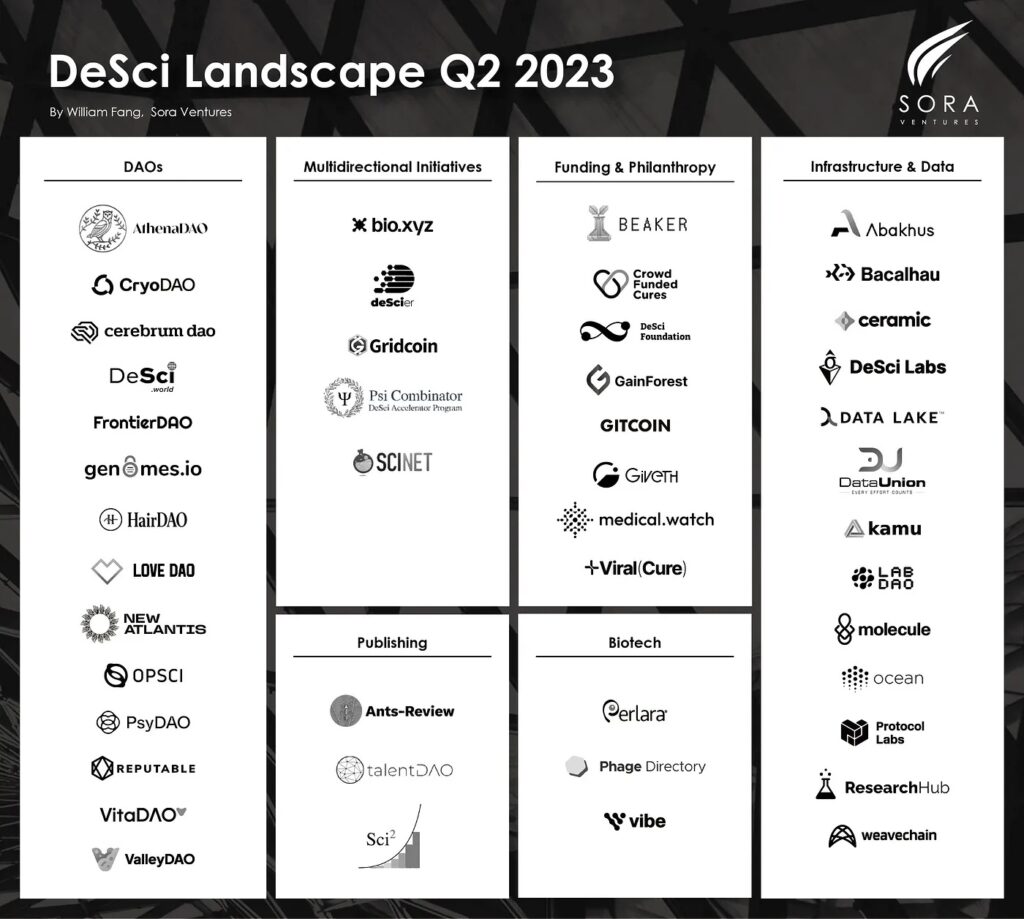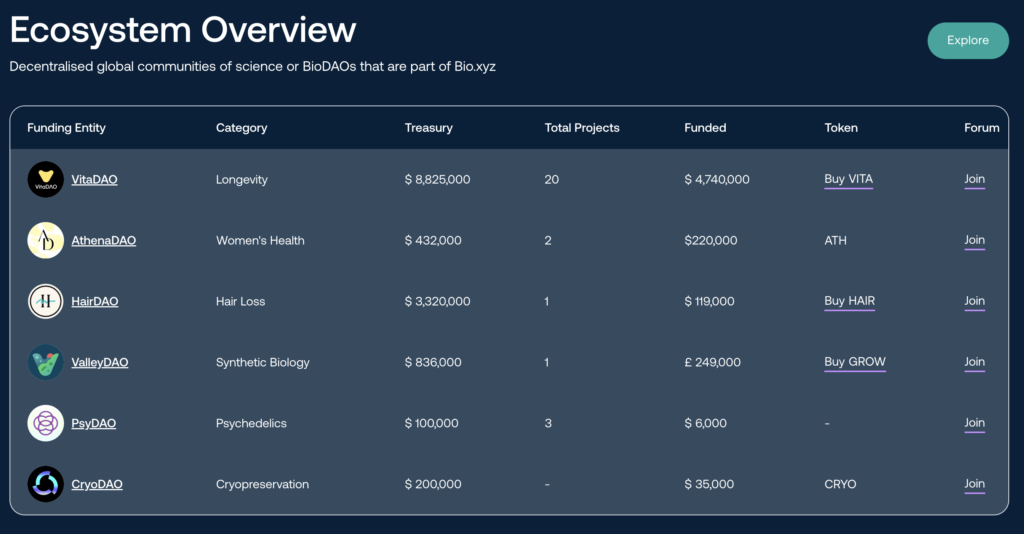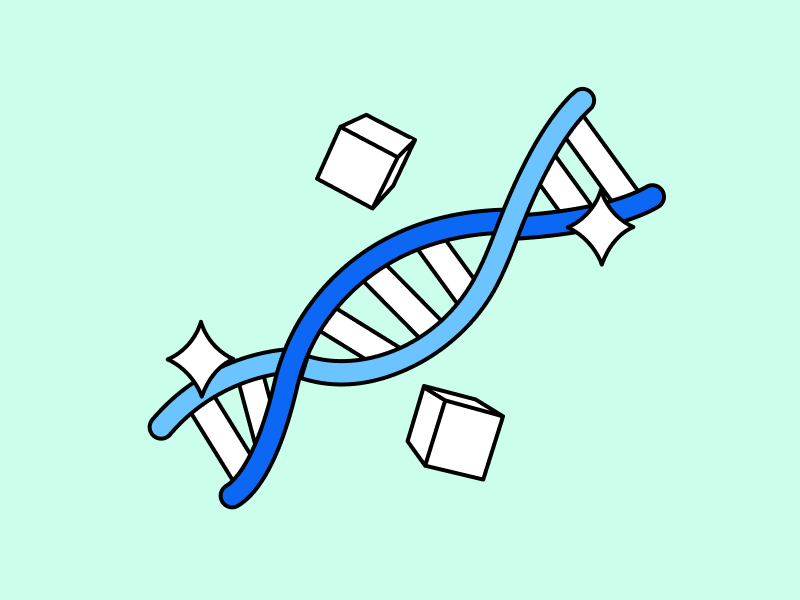Science is an important sector that contributes to all industries in the world. However, the science sector also has its problems. Decentralized Science is an attempt to create an alternative system for the sector. DeSci wants to integrate blockchain technologies into the science sector. First of all, what is decentralized science? What are the benefits of Desci? We will discuss it in detail.
Article Summary
- ⚛️ Decentralized science is a movement that uses blockchain technology to support fairer and more open scientific processes, including funding, writing, reviewing, storing, and disseminating scientific knowledge.
- Some of the problems of the modern science sector are centralized funding, publishing oligopolies, limited access to research, and a replication crisis in scientific research.
- ⚙️ DeSci offers solutions to funding problems through DAOs and Gitcoin, facilitates incentives for higher quality peer review, and open access to scientific research through the utilization of blockchain technology.
- 🧠 Several examples of DeSci applications are DAO-based projects such as VitaDAO, innovative platforms such as Molecule and Bio.xyz for scientific research, and the Research Hub Foundation that facilitates decentralized peer review.
What is Decentralized Science?
Desci or Decentralized Science is a movement to fund, create, review, store, and disseminate scientific knowledge fairly and equitably using blockchain technology. So, DeSci harnesses the power of Web3 and blockchain technology for a more open science ecosystem.
Decentralized science itself is a continuation of a trend within the scientific community that wants to change the way science is funded and disseminated. The main idea of DeSci is that scientific knowledge should be accessible to everyone and the process should be transparent. So, blockchain’s decentralization and transparency features make it the right technology to create an alternative science system.
DeSci actually continues the Open Science movement that has existed since the 1600s. The Open Science movement is still running and developing slowly. However, decentralized science is an alternative movement to Open Science that takes a different method.
Several Problems in the Scientific Research Sector

The DeSci movement did not emerge without a context. Instead, it emerged as a response to problems in the sector. Some of the main problems in the science sector are centralized funding, restrictive publishing systems, limited access, and the replication crisis.
First, Centralized Funding. The scientific knowledge sector relies heavily on third-party funding. Furthermore, funds usually come from the government or large companies with vested interests. This centralization of funding is prone to producing biased research and forcing researchers to adjust to what the funders need. So, experimental research that does not fit the current agenda will find it difficult to get funding.
The second problem relates to the publishing oligopoly. The majority of high-quality research is published by a few publishing companies such as Nature, SAGE, and Springer. These companies control the research publishing market and charge thousands of dollars in publishing fees.
The publishing oligopoly is also directly related to the third problem of limited access. Again, good quality research is very difficult for the average reader to access. You usually need to pay tens of dollars to read journals with a 24-hour access limit or subscriptions that cost hundreds of dollars.
Finally, the replication crisis is a major problem in the scientific research sector. Many scientific studies are very difficult and almost impossible to replicate to test their results. Even the original researchers may not be able to replicate the research. Additionally, funding difficulties also exacerbate the replication crisis as replication studies are not prioritized.
Potential Benefits of DeSci for the Scientific Sector
1. Solving the Funding Problem Using DAOs and Gitcoin
Blockchain has the potential to solve the problem of obtaining funding for scientific research. The funding process that is usually determined by a few experts is now an open process that anyone can participate in. In addition, research teams can also utilize different types of funding on the blockchain.
The method of fundraising using Gitcoin is one of the most popular in the crypto industry. A survey of the impact of Gitcoin funding on the Desci project in September 2022 shows positive signals.
In addition to Gitcoin, one of the Desci project’s already popular fundraising methods is using a DAO that matches each research sector. This segmentation increases the project’s chances of getting funds because it will only compete with projects in the same sector.
IP-NFT technology is also an innovation to ensure the sustainability of research. Every scientific research can generate intellectual property (IP).
2. Incentivized Peer Review
One of the problems with peer review is that there are no incentives for the reviewers. Blockchain and crypto technology can create an incentive system to become a peer review process. So, an incentive mechanism can ensure the quality of scientific research and encourage good peer review.
Peer review on the blockchain is more transparent with a reputation system as a measure of the quality of each reviewer. Then, teams or protocols can give incentives in tokens, either ETH or project-specific tokens.
3. Open Access to Scientific Research
The blockchain and crypto ecosystems strongly encourage data openness and transparency. Many well-known projects in the crypto world have open-source code accessible to other development teams. Furthermore, open-source systems can provide access to scientific journals and data from research.
Access to data is a crucial starting point for every scientific research. So, opening up access to data will help various new research. Blockchain technology can be an ecosystem that enables more openness to scientific data.
Several Implementations of Decentralized Science

1. DAO-based Decentralized Science Projects
DAO-based blockchain projects are the most popular implementation of DeSci. As shown in the figure above, dozens of DAO projects have already been created for scientific research.
So, DeSci DAO projects usually have specific goals and sectors. Some of the most popular DAOs are AthenaDAO for women’s health research, PsyDAO for psychotropic research, and VitaDAO which researches human longevity.
Among all DAO projects, VitaDAO stands out because it successfully funded 20 scientific research projects totaling more than 4 million dollars. VitaDAO has also successfully collaborated with Pfizer and the University of Copenhagen. Additionally, the project also has various initiatives such as the publication of the journal The Longevist.
In addition, like a DAO, VitaDAO has a VITA token. The main function of the VITA token is a governance token to determine the utilization of funds and select research project funding.
2. Molecule and Bio.xyz

Molecule and Bio.xyz are two of the biggest protocols in the decentralized science sector. Not only that, they contribute greatly to innovations in the sector and serve as platforms for other DeSci projects.
Molecule is the creator behind IP-NFT, an NFT to protect the intellectual property rights of decentralized scientific research. So, each research project will print its IP-NFT which has various use cases.
If the research project needs additional funds, the team can use IP-NFT to print IPTs or IP Tokens that anyone can purchase. So, IP Token owners can determine the direction of commercialization of a research project’s IP-NFT.
Molecule and Bio.xyz are two protocols that work closely together. They have a network of partners, including DAOs such as VitaDAO, AthenaDAO, ValleyDAO, HairDAO, and CryoDAO. Bio.xyz plays an important role as a launchpad for each DAO’s token. The latest token launched on Bio.xyz is AthenaDAO’s ATH which successfully raised $316K USDC.
3. Research Hub Foundation
Research Hub Foundation is a decentralized science protocol that aims to create the first decentralized peer review ecosystem. The Research Hub Foundation (RHF) platform has RSC tokens as rewards for researchers who conduct peer reviews. However, each researcher must go through a verification process before they can contribute.
Some researchers from large institutions such as the University of York have already published their research on RHF for other researchers to review. Researchers who need peer review can deposit their journals on RHF and provide incentives to get quality reviews.
Research Hub Foundation is an early iteration of decentralized peer review and the platform is already live. In addition, the appearance of the Research Hub Foundation is similar to the Reddit platform, making it easy to use.
Conclusion
This article explores the concept of Decentralized Science (DeSci), a movement that seeks to utilize blockchain technology to address issues in the science sector. Several problems of modern science are centralization of funding, publishing oligopoly, restricted access to research, and replication crisis. So, DeSci is rooted in the Open Science movement and offers solutions through decentralized funding, incentivized peer review, and open access to scientific research. Some notable DeSci implementations include DAO-based projects, the Molecule and Bio.xyz protocols, and the Research Hub Foundation that pursues decentralized peer review.
How to Buy Cryptocurrency on the Pintu App
You can start investing in cryptocurrencies by buying them on the Pintu app. Here is how to buy crypto on Pintu:
- Create a Pintu account and follow the process of verifying your identity to start trading.
- On the homepage, click the deposit button and top up the Pintu balance using your preferred payment method.
- Go to the market page and look for your favorite asset.
- Click buy and fill in the amount you want.
- Now you are a crypto investor!
You can trade various cryptocurrencies on Pintu such as BTC, ETH, and SOL. In addition, the Pintu application is compatible with various popular digital wallets such as Metamask to facilitate your transactions.
Go and download the Pintu cryptocurrency app on the Play Store and App Store! Pintu is regulated and supervised by Bappebti and Kominfo.
You can also learn crypto through the various Pintu Academy articles which are updated every week! All Pintu Academy articles are for educational purposes, not financial advice.
References
- “Decentralized science (DeSci)”, Ethereum, accessed on 20 November 2023.
- “A Mental Model to Understand DeSci”, Bankless DAO, accessed on 20 November 2023.
- Stephanie Dunbar and Stephen Basile, “The Decentralized Science Ecosystem: Building a Better Research Economy”, Messari, accessed on 21 November 2023.
- Christine Strauss, “Unlocking Scientific Innovation Through Decentralized Science – Part I”, Stanford Law School, accessed on 21 November 2023.
- Christine Strauss, “Unlocking Scientific Innovation Through Decentralized Science – Part II”, Stanford Law School, accessed on 22 November 2023.
- Sarah Hamburg, “A Guide to DeSci, the Latest Web3 Movement”, a16z Crypto, accessed on 22 November 2023.
- Sasha Shilina, “Decentralized science (DeSci): Web3-mediated future of science”, Paradigm Medium, accessed on 23 November 2023.
- Marina Kisley, “Is Decentralised Science better science?”, Litmaps Substack, accessed on 23 November 2023.
